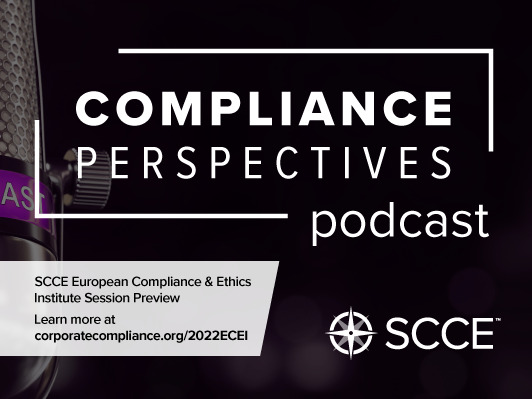Podcast: Play in new window | Download (Duration: 15:21 — 14.1MB)
Subscribe: Apple Podcasts | Email | TuneIn | RSS
When a crisis hits, what do leaders and the crisis team want from the compliance team? It’s a question that Jonathan Armstrong, Partner at Cordery, addresses in this podcast and will be speaking to at the 2022 SCCE European Compliance & Ethics Institute in Amsterdam.
For starters he points out an oft-cited admonition: during a crisis the compliance team can’t be the department of “no”. Focusing on what can’t be done or on what happened in the past, for that matter, is counterproductive. The post-mortem will come later. For now, the emphasis has to be on moving forward. The team is looking for people who will be able to find constructive solutions and alternatives.
Be sure, he advises, also to focus on how compliance can reduce the chance and size of penalties. To that end, focus on remediation as early as possible. Prosecutors will, after all, be focused on what the company has done to undo the problem and keep it from reoccurring.
Some of the other advice he provides in this podcast includes:
- Rehearse a crisis before one occurs
- Be a single source of truth: these are the issues we have, this is what we will have to do, and this is where we are on the journey
- Bring crisis tools with you: crisis plans, templated press releases, specimen internal communications
- Be more directive than consultative
As importantly, take the time to understand the psychology and roles of leadership. Leaders know stakeholders want to see action. Their predisposition will be to act and act quickly; if you’re too slow they may be ahead of you.
Recognize, too, that the board is sensitive to their own reputation as well. They will also be leaning to act quickly and decisively.
Listen in to learn more about how to prepare for a crisis, manage through one and come out the other end better than you might expect. Then plan on joining us for the 2022 SCCE European Compliance & Ethics Institute.


